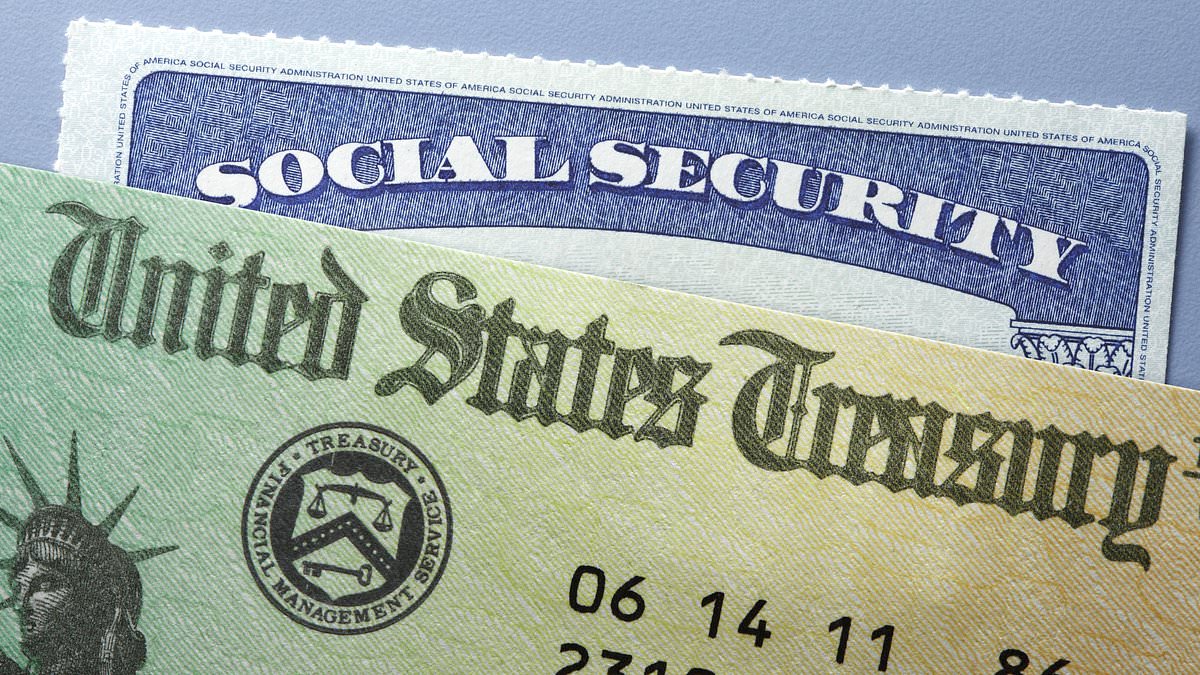Taxes on social security are set to change this month, reducing the amount some will receive from their checks.
Some states will collect more taxes than others from social security benefits, based on a person or couple’s overall income.
Nine states are hiking their tax on social security in September therefore reducing the overall benefit of the monthly check.
Beneficiaries that live in Colorado, Connecticut, Minnesota, Montana, New Mexico, Rhode Island, Utah, Vermont or West Virginia may have to pay more.
The exact impact will depend on which state you live in and overall income, meaning a larger social security check will likely result in higher taxes owed.

Nine states are hiking their tax on social security payments in September
Read More
Millions of Americans could see their Social Security retirement payments cut by $300 a month

About 40 percent Social Security recipients must pay income taxes on their benefits, usually as a result of substantial income separate to their benefits.
The tax will be taken when you file a federal tax return as an individual, or a joint return with your spouse.
Around 68 million Americans receive social security in some form every month, costing about $1.5 trillion a year.
The highest retirement payments are as much as $4,873, though the figure is likely to be lower for the majority of recipients.
Indeed, the average retirement check is worth $1,918 a month, according to the Social Security Administration.
‘The maximum benefit depends on the age you retire. For example, if you retire at full retirement age in 2024, your maximum benefit would be $3,822,’ the SSA states on its website.
‘However, if you retire at age 62 in 2024, your maximum benefit would be $2,710.
‘If you retire at age 70 in 2024, your maximum benefit would be $4,873,’ the site explains.
Nearly nine out of ten people age 65 and older receive a Social Security benefit and those benefits tend to represent about 30 percent of their income.

Around 68 million Americans receive social security, costing about $1.5 trillion a year
The payments tend to be staggered throughout the month due to the large number of people receiving checks.
For those that have been claiming Social Security since 1997, or claim both retirement benefits and Supplemental Security Income (SSI), these were paid last week, on September 3.
Those who only receive Supplemental Security Income (SSI) benefits, not retirement, should have received their checks on August 30, as the usual 1st of the month payment day fell on a weekend.
The highest SSI payment that can be claimed for an individual is currently $943 and $1,415 for a couple.
Other beneficiaries will should have begun receiving their payments this week, depending on their date of birth.
If you’re born within the 1st and 10th of any month you will receive your monthly check tomorrow, September 11.
Claimants with a birthday between the 11th and 20th of any given month, will receive their payments the following week on September 18.
The last group, whose birthdays fall between 21st and 31st of the month will have their benefits paid on September 25.
Read More
How much the average person at every age has in their 401(K) – how do YOUR savings compare?

The SSA recommends waiting three working days following a due date before contacting them about a late payment.
It comes after the release of a new report which found that Social Security is expected to run short on funds by 2035.
An ageing population is pushing up the cost of the program as a smaller share of people are paying into it, and spending is outpacing income.
The latest annual report from the Social Security Board of Trustees found that the program will only be able to pay out full benefits for the next 11 years – which is one year later than previous estimates.
